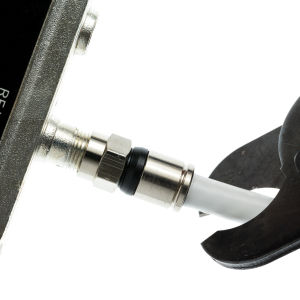Bipartisan opposition to the Federal Communications Commission’s plan to open cable providers’ content to third-party set-top boxes in growing in Congress, where almost a dozen lawmakers sent a letter to the agency this week asking for a delay in the rulemaking process.
Ten senators on both sides of the aisle signed onto a letter to FCC Chairman Tom Wheeler dated Thursday asking the chairman to delay advancing the rules until after their potential impact of small and rural providers can be assessed.
Senators from states with significant rural expanses, including Pennsylvania Democrat Sen. Bob Casey and Colorado Republican Cory Gardner, signed the letter.
“Small pay-TV providers are often the communications backbone of small rural communities and are frequently the only providers willing to serve these hard-to-reach areas,” representatives wrote. “While we appreciate your commitment to protecting consumers, we urge you to delay the video navigation device proceedings until the FCC sufficiently studies the specific costs and impacts of the proposal on rural consumers and small providers.”
The lawmakers are the latest in a growing coalition of industry representatives and consumer advocates pressing the agency to delay a vote to adopt the rulemaking, advanced via a partisan vote at the agency in February.
If adopted, the proposal would compel cable providers like Comcast and DirecTV to make their video content accessible to third-party devices, giving consumers the opportunity to purchase a set-top box from a company like Google instead of renting one from the provider.
Critics of the proposal say they’ll have an outsized impact on smaller providers, who will have to make changes to their current systems to open their video content to any third-party box.
“Small providers will not be able to afford the costs that could be associated with building a new architecture to comply with the proposed rule,” the letter reads. “When equipment suppliers, programmers and other vendors are compelled to meet a new standard, it often leaves small operators with no alternative choice but to comply. Moreover, they are often left with the highest costs and the least support.”
Montana Sens. Steve Daines, a Republican, and Jon Tester, a Democrat led the effort alongside representatives from rural states including, Arkansas, Kansas, West Virginia, Nebraska, Indiana and Nevada.
The American Cable Association, an industry group whose membership includes small and rural providers, released a statement Friday touting the letter as further incentive for the FCC to hit pause on the rulemaking.
“As ACA has previously noted, the FCC’s proposal would force more than 200 small providers to either go out of business or cease offering video service, leaving their customers with fewer competitive options,” the group said.
So far the only study the FCC has cited in the rulemaking comes out of the offices of Sens. Ed Markey of Massachusetts and Richard Blumenthal of Connecticut, which found the country’s biggest cable companies charge the average U.S. household $231 annually in set-top box rental fees, pulling in almost $20 billion every year for providers.
Others in Congress have raised questions about the proposal’s potential impact on minority programmers and cybersecurity.

